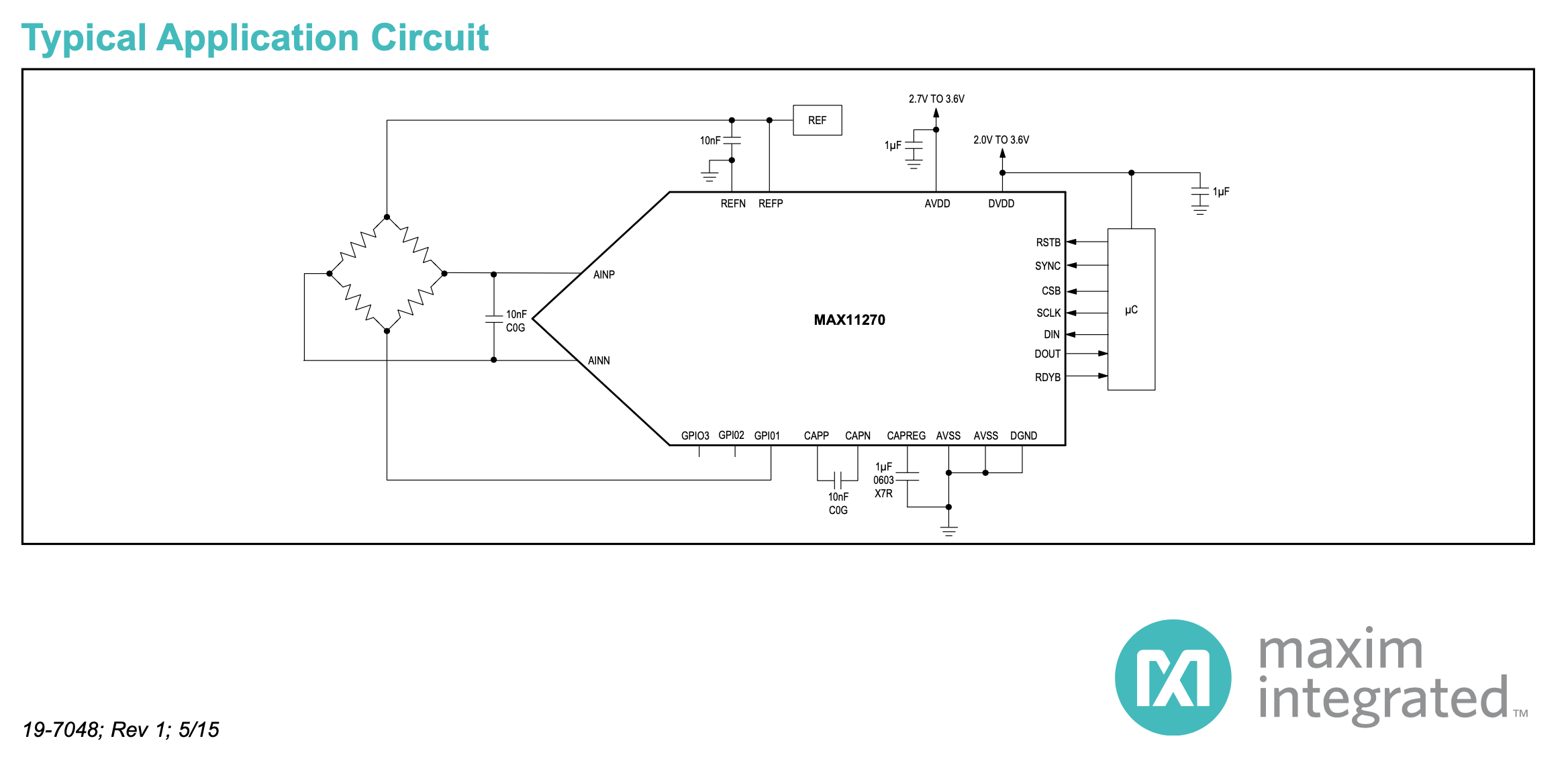On the specification sheet there is this application circuit where the sensing bridge circuit is driven by the same voltage reference IC that sets the voltage reference (REFP) of the ADC.
I remembered being told that any voltage reference IC should not be driving any circuit with it, and its sole purpose is the set a voltage with minimal output current (e.g. setting REFP of an ADC). I did a quick search on voltage reference IC. Most VREF IC I found can output at least 10-25mA of current - more than sufficient to power a simple bridge circuit that worths a few hundred Ohms or more. So I don't understand the argument that the bridge has to be separately excited.
Is it a common practice to drive a bridge setup with the same voltage reference IC that sets REFP of an ADC to lower component counts?

